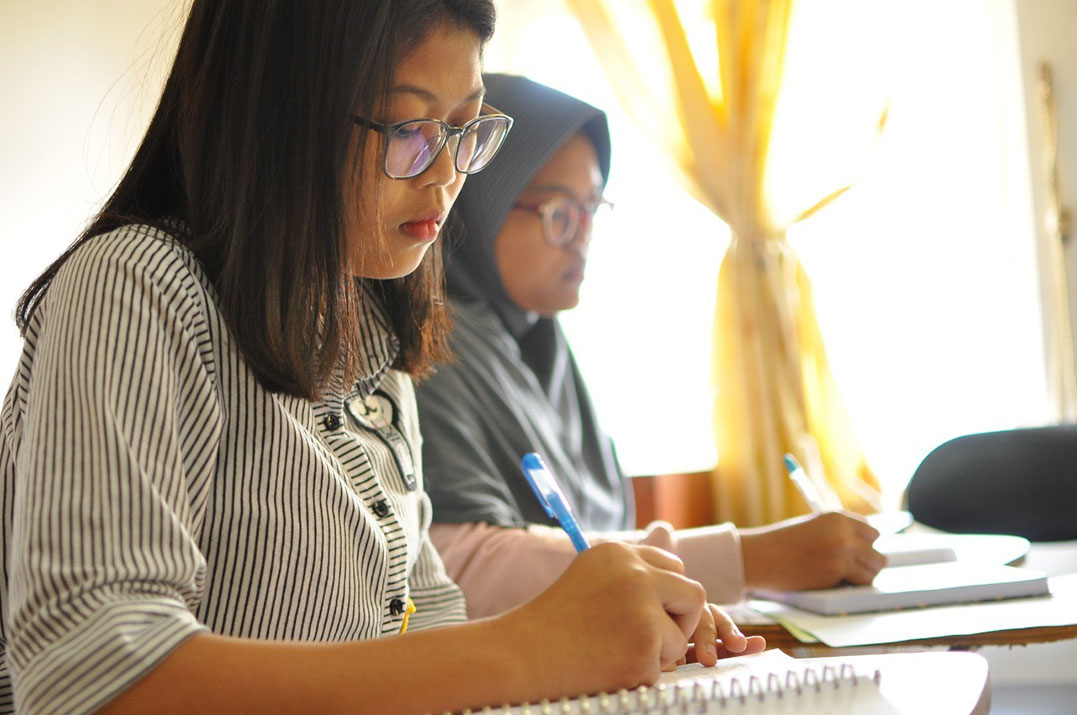Which to Choose: Studying in Indonesia or Abroad?
Continuing higher education is a big decision faced by many prospective students. Especially for those of you who are currently in 12th grade of high school. Should you study domestically or seek experience abroad? This choice must be based on various important factors that can affect your academic and professional future. The following will discuss Which to Choose: Studying in Indonesia or Abroad?
Things to Consider When Choosing to Study in Indonesia or Abroad
Quality of Education and University Reputation
One of the first factors to consider is the quality of education and reputation of the university. Universities abroad, especially those in countries such as the United States, United Kingdom, Canada, and Australia, are often ranked globally with a strong international reputation.
They offer internationally recognized programs with advanced research facilities. Students there also have access to a global alumni network that can open up many opportunities after graduation.
However, universities in the country also continue to improve their quality. Several universities in Indonesia have received international accreditation and offer programs that are no less good than universities abroad. For those who want to study in a more familiar environment with a curriculum that is in line with national needs, a domestic university can be the right choice.
Tuition Fees and Living Costs
Financial considerations are often a key factor in this decision. Tuition fees abroad are generally much higher, especially in countries with world-class universities such as the United States and the United Kingdom.
In addition, the cost of living in big cities such as New York or London can be very high. However, there are many scholarships offered to high-achieving international students, which can help cover tuition fees and living expenses.
On the other hand, studying domestically is usually more affordable. At public universities, tuition fees can be lower, and living costs tend to be more affordable, especially if students choose to live with family.
Career Opportunities After Graduation
One of the main reasons students choose to study abroad is to increase their career opportunities in the global job market. Graduates from top universities abroad are often more competitive in the international job market.
In addition, an international alumni network can be a valuable asset in building a career in various countries. International experience is also highly valued by many multinational companies, giving overseas graduates greater access to global career opportunities.
However, for those looking to build a career in Indonesia, studying domestically also offers advantages. Graduates of local universities often have a better understanding of the national job market context and have strong networks within the country.
Flexibility of Programs and Curriculum
Another factor that students often consider when choosing a study location is the flexibility of the programs and curriculum offered by the university. Overseas, particularly in countries such as the United States and Canada, higher education systems tend to be more flexible.
Students often have the option to change majors or choose a variety of subjects even if they are not strictly related to their major. This allows students to broaden their knowledge and skills in a variety of areas and better tailor their education to their personal interests and career goals.
In contrast, in Indonesia, educational programs are generally more structured with a more fixed curriculum. Students tend to have to follow a set path with less room for flexibility. However, some universities in Indonesia are starting to offer more options for elective courses or cross-major programs to accommodate the growing academic needs.
Research and Development Opportunities
In many top universities abroad, research is a vital component of the educational experience. Students, even at undergraduate level, often have access to state-of-the-art laboratories and well-funded research projects.
This allows students to engage in innovative research, work with professors who are experts in their fields, and gain practical experience that can be invaluable for their academic or professional careers. Some countries, such as the United States and Germany, are also renowned for their contributions to scientific and technological research.
In contrast, while Indonesian universities also have research programs, research facilities and funding are sometimes limited. However, in recent years, the Indonesian government and higher education institutions have begun to invest more in research and innovation.
Several major Indonesian universities, such as the University of Indonesia and the Bandung Institute of Technology, have begun to strengthen their focus on research, with greater international collaboration and access to modern facilities. Students with a particular interest in research may find more opportunities abroad, although domestic research opportunities continue to grow.
Administrative Requirements
Administrative and legal processes are often overlooked aspects of choosing a place to study. For students planning to study abroad, requirements such as student visas, residence permits, and various other legal documents can be a big challenge. This process is often time-consuming and expensive, and requires extra attention to detail. Some students choose to use the services of an education agent to help with these requirements, although this adds additional costs.
On the other hand, studying in the country is certainly easier from an administrative perspective. Students do not have to worry about visas or residence permits, and the university application process is relatively simpler. These advantages can be important factors for those who do not want to deal with complicated bureaucratic processes. For some students, administrative obstacles may be the deciding factor in deciding to continue studying in the country.
The decision between studying at home or abroad depends on the needs, goals, and circumstances of each individual. The quality of education, cost, cultural experience, and the above are some of the main factors to consider. There is no definite answer as to which is better, as each option has its own advantages and challenges. The most important thing is to choose the educational path that best suits your personal and future professional aspirations.
That's a brief review that can be explained regarding Things to Consider When Choosing to Study in Indonesia or Abroad, hopefully the article above can help and be useful.


 PENDAFTARAN SISWA
PENDAFTARAN SISWA

 Persiapan Menghadapi SBMPTN
Persiapan Menghadapi SBMPTN Ini Cara Masuk STAN dan Tips yang Bisa Anda Terapkan!
Ini Cara Masuk STAN dan Tips yang Bisa Anda Terapkan! Apa Itu Ujian Mandiri PTN dan Bagaimana Tips agar Bisa Lulus
Apa Itu Ujian Mandiri PTN dan Bagaimana Tips agar Bisa Lulus